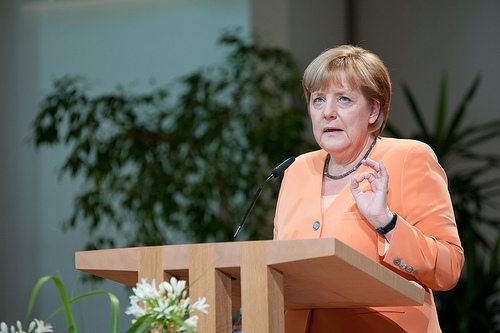

Economy
Energy policy provides common ground for German coalition parties
The two biggest political parties in Germany have struck a deal to form a coalition, two months after chancellor Angela Merkel won the general election.
Merkel’s Christian Democratic Union (CDU) party reached the deal with the centre-left Social Democrats (SPD) on Wednesday after negotiations went on through the majority of Tuesday night. The two parties managed to reach agreements on energy policy, in which it will hope to step-up the industry’s contribution to energy generation.
Germany’s renewables industry currently accounts for 25% of all energy produced in Germany, but the coalition is hoping to legislate to accommodate for a 40-45% contribution by 2025 and a 55-60% contribution by 2035.
The plans build on Chancellor Merkel’s previous commitments to renewable energy. Back in 2011, Merkel announced that she intended to decommission all of Germany’s nuclear plants in the wake of Japan’s Fukushima disaster, favouring an energy industry that is “safe, reliable and economically viable”.
In Germany, the renewable energy sector employs around 400,000 people.
If implemented, the plans would further strengthen Germany’s position in the world as a leader in renewable energy, building on the Renewable Energy Act introduced in 2000 to increase energy efficiency and cut carbon emissions.
Further reading:
Five renewable energy lessons from Germany’s Energiewende
UK should follow Germany’s renewable energy lead
Germany sets solar benchmark over sunny weekend
EU jabs at German renewable energy law
UK is fourth most attractive country for renewable energy investment


 Environment12 months ago
Environment12 months agoAre Polymer Banknotes: an Eco-Friendly Trend or a Groundswell?

 Features11 months ago
Features11 months agoEco-Friendly Cryptocurrencies: Sustainable Investment Choices

 Features12 months ago
Features12 months agoEco-Friendly Crypto Traders Must Find the Right Exchange

 Energy11 months ago
Energy11 months agoThe Growing Role of Solar Panels in Ireland’s Energy Future



























